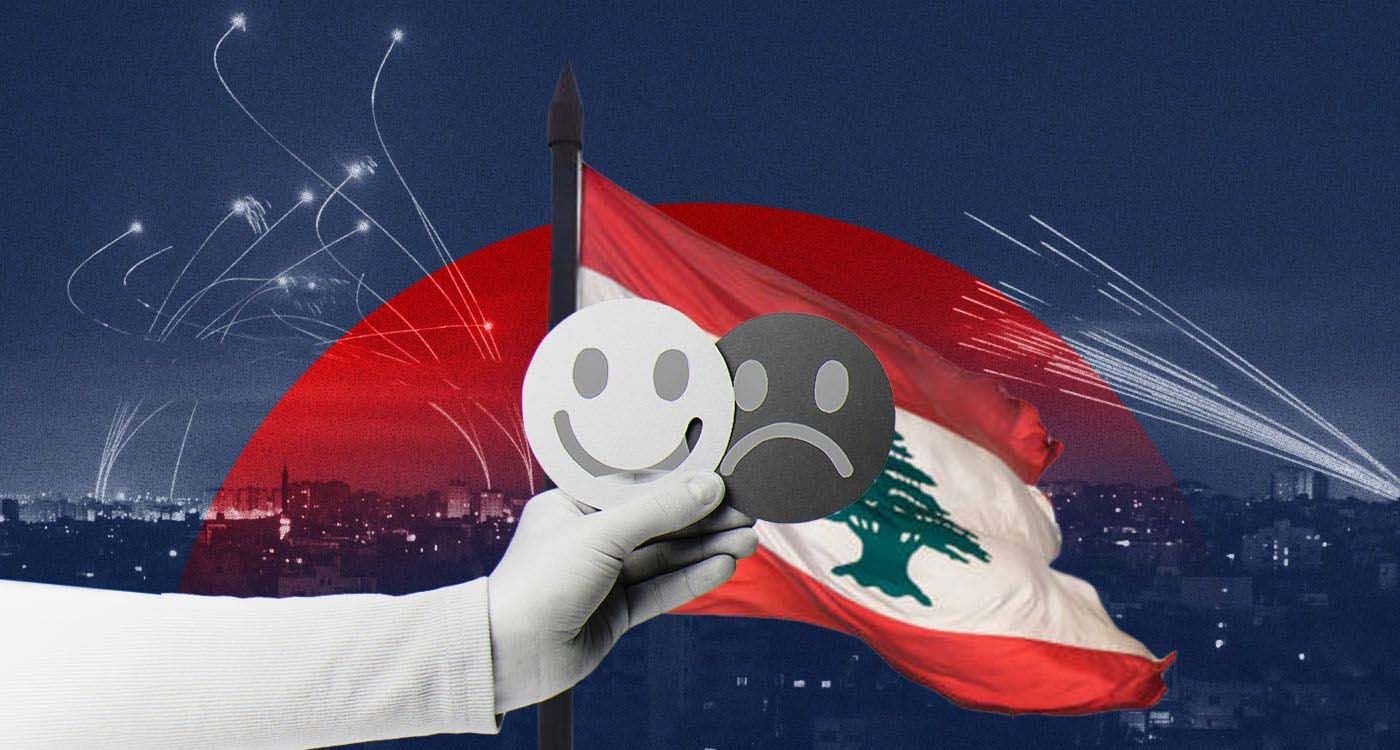
As the Iran-Israel conflict escalates, Lebanon slips into another summer of uncertainty. Between the fear of regional war, revived trauma, and a yearning for lightness, each person copes in their own way. Resignation, humor, partying, or denial—this is a country teetering on a fragile edge.
As summer gets underway, a new conflict, this time between Israel and Iran, has once again cast a shadow over Lebanon.
“Our summers are always ruined,” says Karl bitterly. In his forties, he launches into a familiar lament, recalling the many local and regional summers marred by war that inevitably spill over into Lebanon and wear down the national spirit.
“Just last year, we were shut in, listening to grim news from the South. Like July 2006, Lebanon is never spared,” he adds.
Alexandra shares the feeling. While she acknowledges that “technically, this war is far away,” she points to its immediate impact, especially on tourism, which has already taken a hit less than ten days in.
The psychological toll is just as real. Alexandra speaks of “buried Lebanese traumas” that resurface each time: the anxiety, panic, and fear that every new conflict sets off once again.
Celebration, Music, and Laughter: Defiance Against Trauma
She underscores humor as the Lebanese people's most cherished defense mechanism, an artful way of softening the edges of anxiety. One need only scroll through social media to encounter a cascade of biting jokes and viral videos.

Anonymous Credit: Image Shared via WhatsApp Group
Among them, a now-iconic video that rapidly spread online and was later featured by international outlets: a Lebanese saxophonist, poised on a rooftop in Tabarja, continues to play—undaunted—as Iranian missiles blaze across the sky toward Israel, illuminating the night over Lebanon.
“I’m not taking sides. I played music because it’s the only way I know to respond,” says Alain Otayek in an interview on French TV show Quotidien with Yann Barthès on TMC, adding that he rejects “any attempt at politicizing.”
In a reel shared on his Instagram account, he recounts how instinct led him to continue playing his saxophone solo, describing music as a message of love and peace. Nothing more. Nothing less.
Another voice joins the chorus: “Last Saturday, at a friend’s gathering in the mountains, I found myself filming missiles streaking across the sky,” recalls 23-year-old Kira, before adding: “Beirut is Beiruting again.” For her, “choosing life and celebration” was a quiet act of defiance.
She was far from alone. Others have also captured dance floors pulsing beneath a sky etched with Iranian missiles slicing through Lebanese airspace, intercepted by Israel.
The moment even drew the attention of French-Moroccan comedian Amine Radi, who posted a now-viral Instagram reel titled “The Lebanese People and the War.” In it, he exclaims: “Habibi! Lebanese people, are you crazy? You’ve unlocked a whole new level of madness! There’s an actual war between Iran and Israel, missiles flying overhead… and what are the Lebanese doing? Filming! Posting Snapchats and Stories! Is there seriously nothing that rattles you?”
Responding to the video, one viewer offered a heartfelt tribute: “These are souls rendered almost untouchable… After everything they’ve lived through, so many wars and so much loss, only the present moment truly matters now. ❤️❤️ Sending love to the beautiful people of Lebanon.”
Anxiety, Immunity, Resignation, and the Weight of Powerlessness
For many, anxiety has become a familiar companion.
“I’m a little anxious, yes, but we’ve grown used to this,” says Andy, 22. “After nine months of war in Lebanon, it’s become routine. We live with it.” More than anything, she hopes Lebanon—implicitly, Hezbollah, “stays out of this war.”
“Of course I’m nervous when I see a missile in the sky,” admits Tarek. “What if one hits? There’s nothing I can do. I’ve learned to live with it.”
Kareen says she feels “numb, hollowed out, and powerless in the face of the barbarity of the sociopaths who govern us.”
Elie shares the same unease, voicing his fear of what lies ahead: “This is a situation that could spiral at any moment. I am bracing for a summer that feels uncertain, perhaps even chaotic. It’s deeply unsettling to live in this kind of limbo, powerless and suspended in the wait for what’s to come.”
A Trust in Tomorrow
Still, not all are consumed by fear and uncertainty. Among them was Nabila: “We’ve weathered worse in Lebanon… I place it all in divine hands,” she said, serene and softly reassuring.
Karim echoes her belief: “Lebanon has nothing to do with this new war. The country is in a different place now.”
Carla is confident in her reasoning: “I’m nearly certain this won’t escalate. Hezbollah won’t intervene. And even in the unlikely event that they do, any retaliation will be limited to the South and the southern suburb of Beirut.”
Like a Scene from Science Fiction
“It’s surreal,” says Pascal. “To watch missiles streak across the sky in a war that isn’t even ours.”
Maha, a yoga teacher encountered in downtown Beirut, echoes the sentiment: “What’s happening here is like science fiction.” She understands the stakes, yet meets them with a smile.
And indeed, as these lines are written, the world remains a bystander, powerlessly watching as Israel and Iran enter their ninth day of military confrontation.
We leave you with the quiet clarity of Elie: “To make it through in Lebanon today, you either take refuge in denial, lose yourself in entertainment or passion, or blend all three, with a good dose of composure. You have to live in the moment… almost in abstraction.”
If you get it, act accordingly!




Comments